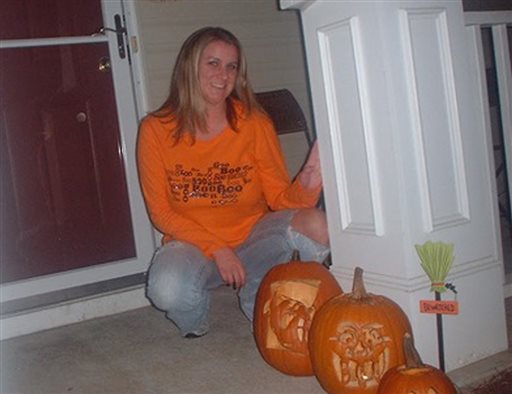DETROIT - A federal judge in Atlanta has sent an important wrongful death lawsuit against General Motors back to a Georgia court.
Judge Thomas Thrash Jr. ruled Friday that a Cobb County judge should handle the case filed by the family of Brooke Melton. GM had moved the case to the federal court system.
Melton, a 29-year-old nurse, died in a 2010 car crash near Atlanta. Her parents sued GM alleging that a faulty ignition switch in her 2005 Chevrolet Cobalt unexpectedly shut off the engine, causing her to lose control of the car.
The case exposed that GM knew about the faulty switches for more than a decade but failed to recall the cars until this year. It also touched off a crisis at the company that has resulted in 54 recalls involving 29 million vehicles this year. And it brought federal investigations, cover-up allegations and a $35 million fine from federal regulators for delays in reporting safety problems.
"It has to be a bad day for General Motors," said Jere Beasley, a Montgomery, Alabama, lawyer who is on the Meltons' legal team. The move to a local court, he said, is likely to speed up questioning of company executives and employees under oath. A local jury also is more likely to issue strong punitive damages if it finds GM at fault, he said.
Beasley said he and Lance Cooper, a Georgia lawyer who filed the original case, plan to file motions on Monday asking the judge to allow depositions of GM CEO Mary Barra, Corporate Counsel Michael Milliken and all 15 employees that were dismissed by GM due to the ignition switch case. They'll also ask to question Ray DeGiorgio, the engineer who designed the switch, and all of his supervisors.
"I think the key to the overall General Motors litigation picture is taking depositions under oath of key people," Beasley said.
A GM spokesman said the company would not comment on pending litigation.
Even though the case was sent back to a local court, the Meltons still have to convince Cobb County Judge Kathryn Tanksley to reopen it, which judges normally frown upon. They settled last year with GM for $5 million, but are willing to return the money and take the case to trial.
To reopen the case, lawyers must prove that GM fraudulently concealed evidence. But Beasley says he's confident they'll be able to do that.
In a deposition before the case was settled, DeGiorgio said under oath that he didn't make any changes to the ignition switches after they went into production. But a document provided to Congress by switch maker Delphi Automotive showed that in 2006, DeGiorgio signed off on changes that made the switches harder to turn. GM did not produce the DeGiorgio document in the Melton case.
Cooper contends that DeGiorgio lied under oath and that GM covered it up. Repeated efforts by The Associated Press to reach DeGiorgio have been unsuccessful.
The Melton case eventually forced GM to recall 2.6 million older small cars to replace faulty switches. The switches can be turned too easily and can slip out of the "run" position unexpectedly, shutting off the engine and knocking out power steering and brakes. That can also disable the air bags.
Beasley said that if lawyers can successfully reopen the Melton case, it likely will be the first to go through the pretrial discovery process. Anything unearthed by lawyers in this case likely will be used in future lawsuits against GM, he said.
GM has acknowledged that at least 13 people have died in crashes liked to the switches, but lawyers and lawmakers say the death toll is closer to 100.

